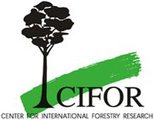A case study co-authored by the World Agroforestry Centre (ICRAF), the Universidade Eduardo Mondlane and the Center for International Forestry Research (CIFOR) explores the links between a domestic logging ban in China and illegal logging in Mozambique.
The paper 'Chinese Trade and Investment in Africa: Assessing and Governing Trade-Offs to National Economies, Local Livelihoods and Forest Ecosystems,' notes that though the export of raw logs was banned by Mozambique in 2007, the volume of logs imported by China is between three and five times higher than officially reported.
 9 April 2014: A case study co-authored by the World Agroforestry Centre (ICRAF), the Universidade Eduardo Mondlane and the Center for International Forestry Research (CIFOR) explores the links between a domestic logging ban in China and illegal logging in Mozambique. The paper , titled ‘Chinese Trade and Investment in Africa: Assessing and Governing Trade-Offs to National Economies, Local Livelihoods and Forest Ecosystems,’ notes that although the export of raw logs was banned by Mozambique in 2007, the volume of logs imported by China is between three and five times higher than officially reported.
9 April 2014: A case study co-authored by the World Agroforestry Centre (ICRAF), the Universidade Eduardo Mondlane and the Center for International Forestry Research (CIFOR) explores the links between a domestic logging ban in China and illegal logging in Mozambique. The paper , titled ‘Chinese Trade and Investment in Africa: Assessing and Governing Trade-Offs to National Economies, Local Livelihoods and Forest Ecosystems,’ notes that although the export of raw logs was banned by Mozambique in 2007, the volume of logs imported by China is between three and five times higher than officially reported.
The case study partly attributes illegal logging in Mozambique to high Chinese demand for raw logs and a 1998 Chinese ban on domestic logging that contracted supply. The article notes that, on a per volume basis, raw logs have a higher value than sawnwood in Chinese markets, for which 80 percent of Mozambican exports are destined. According to the report, although Mozambique instituted a ban on raw log exports to boost local wood processing and employment, a result has been increased illegal logging and trade in raw logs, due to demand and also to weak enforcement of logging and export regulations.
To address illegal logging in Mozambique, the case study suggests that the export ban may need to be lifted in order to reform and bring illegal activities under control, in a way that contributes to the formal economy. Furthermore, the article notes that since 41 percent of concessions without a management plan are operated by Chinese companies, increasing awareness among such companies of the guidelines for sustainable practices for overseas investors may improve the overall sustainability of the logging industry.
CIFOR is a member of CGIAR. [CIFOR Press Release] [Publication: Chinese trade and investment in the Mozambican timber industry: A case study from Cabo Delgado Province]